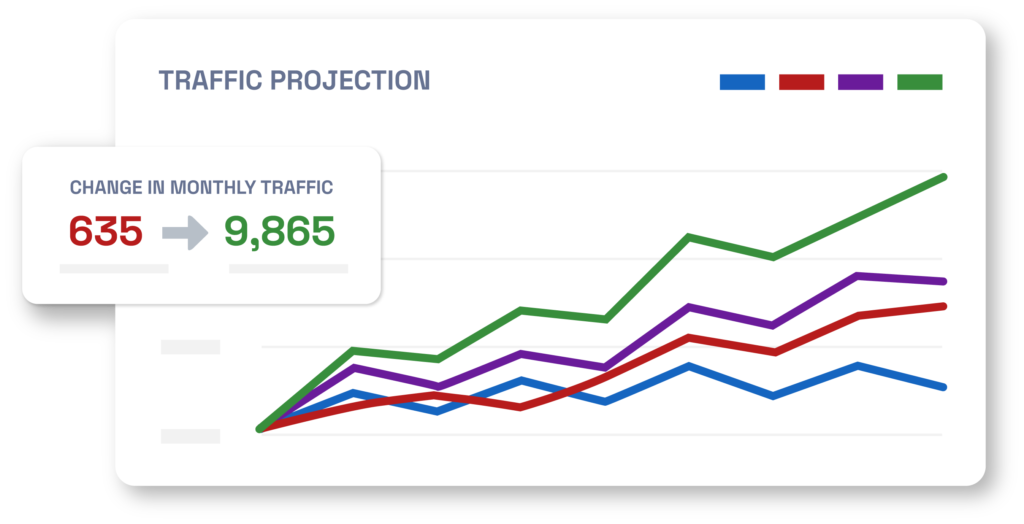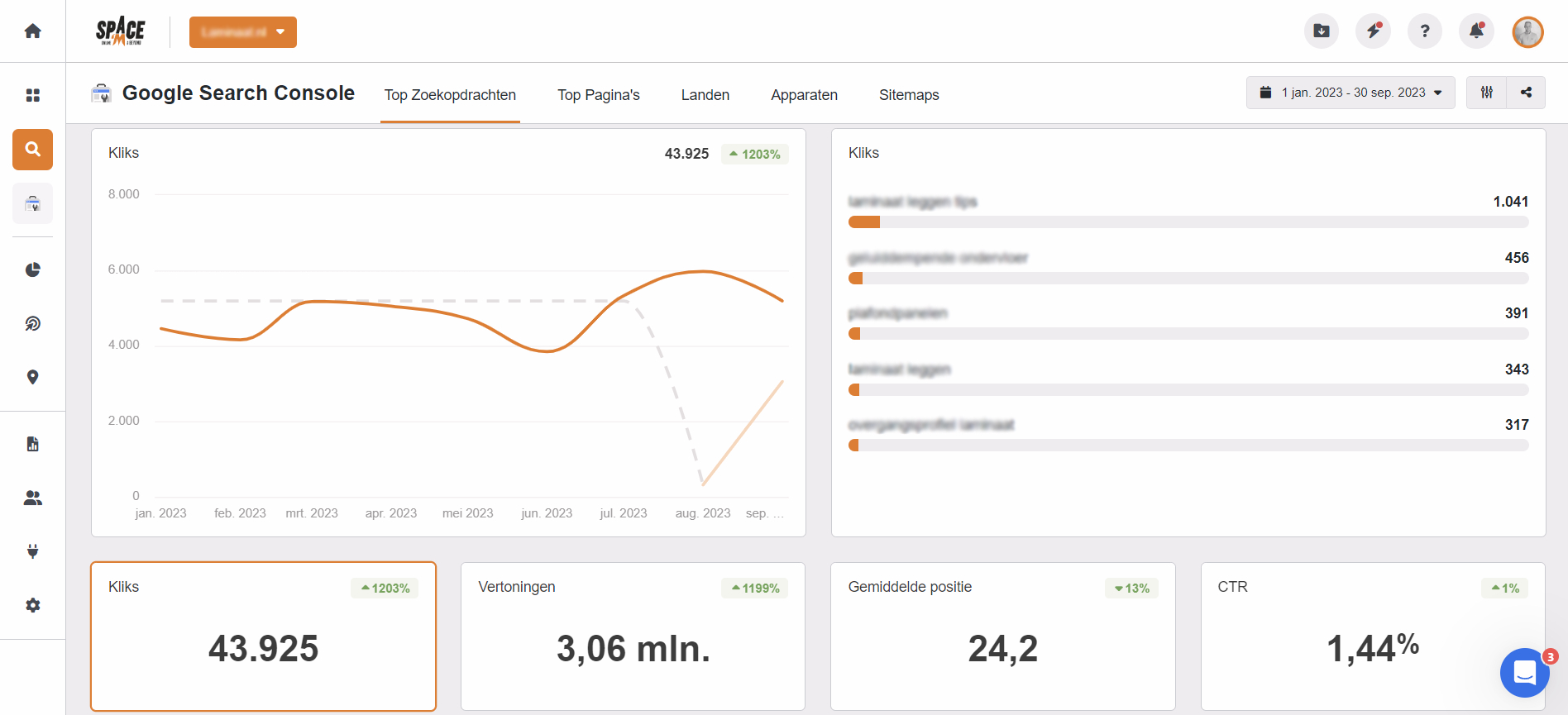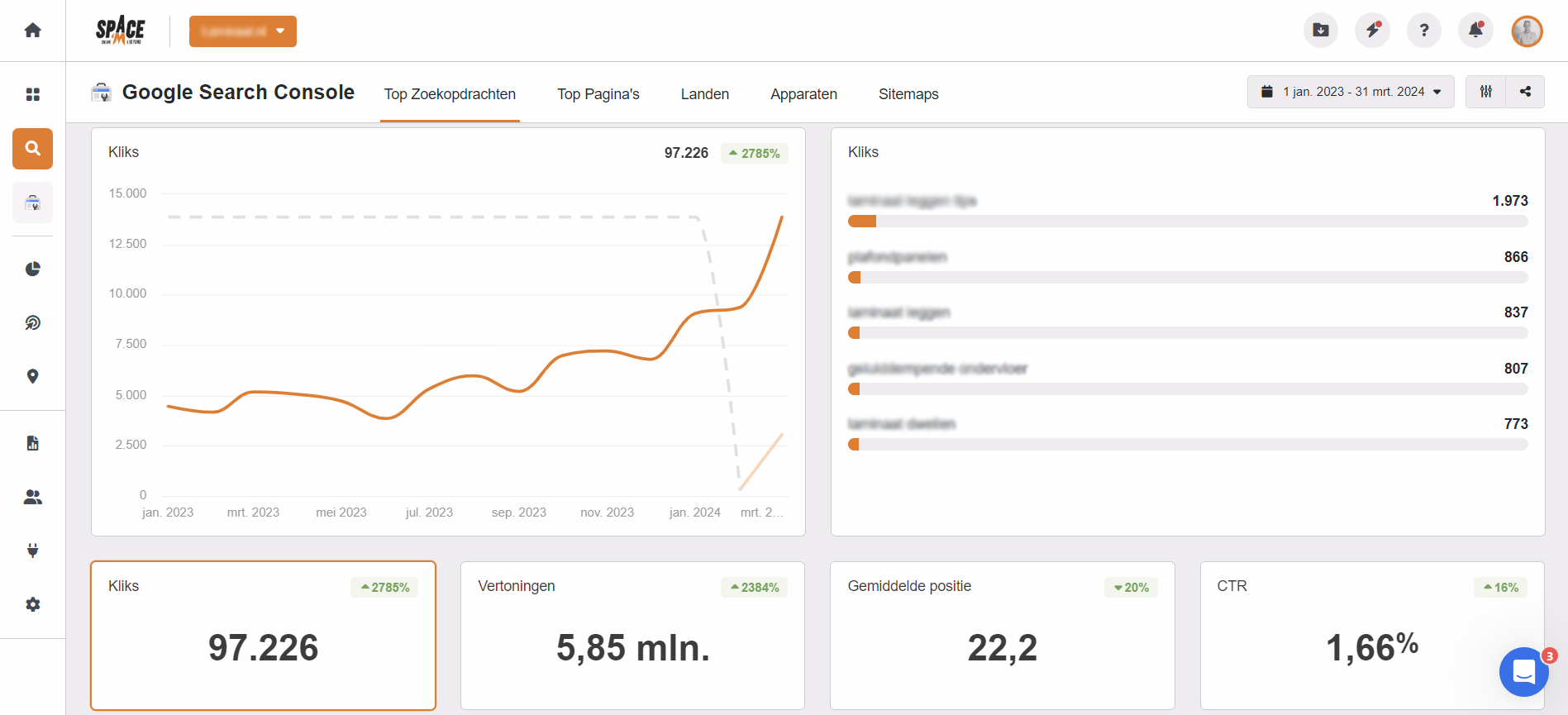Effective SEO for law firms can transform your business by improving online visibility and attracting more clients. In this comprehensive guide, we’ll cover essential strategies that law firms can use to master SEO. From keyword research to local SEO, we’ll show you how to enhance your online presence step by step.
Key Takeaways
- SEO for law firms is essential for improving online visibility and attracting potential clients through enhanced search engine rankings and high-quality content.
- A comprehensive law firm SEO strategy should include keyword research, on-page SEO, technical SEO, local SEO, and backlink building to maximize search engine rankings and drive organic traffic.
- Content marketing and local SEO, including optimizing Google Business Profiles and managing online reviews, are crucial for establishing credibility, improving search rankings, and effectively reaching local clients.
Understanding SEO for Law Firms
SEO for law firms utilizes techniques aimed at improving the quality of a law firm’s website, thereby enhancing search engine rankings. The goal is to guarantee your firm’s prominent placement in the results when someone searches for legal services. This practice, known as SEO for lawyers, is crucial for capturing organic search traffic and growing a law firm’s business. By implementing lawyer SEO strategies, your firm can achieve better visibility online.
Lawyers and law firms often find the task of delving into SEO overwhelming when they first encounter it. This can make it a challenging aspect of their work. It involves:
- Technical aspects
- Keyword research
- Content creation
- And more
Keep in mind that SEO isn’t a one-off task but a consistent process requiring ongoing efforts and time to yield results. Unlike paid SEO (PPC ads), organic SEO focuses on optimizing a website to rank in search results without paid methods.
The fundamental idea behind search engine optimization (SEO) involves using proven methods to boost a law firm’s online search visibility, ultimately leading to a higher ranking in search results. This strategy enhances the firm’s capacity to reach potential clients and distinguish itself in online searches. This includes optimizing websites for relevant, high-traffic keywords and creating high-quality content to achieve better placement on SERPs (Search Engine Results Pages). Understanding these concepts is crucial for lawyers seeking to succeed in the digital landscape.
Moreover, SEO delivers an impressive return on investment for legal businesses, with law firms seeing significant growth in new clients within just a few years of optimizing their online visibility. It funnels more visitors to a law firm’s website by elevating its rank on search engine results pages. SEO plays a crucial role in helping law firms establish an online presence and reach potential clients, ultimately leading to business growth. It contributes to the visibility and accessibility of the firm’s services, aiding in attracting and retaining clients.
Key Benefits of SEO for Law Firms
The benefits of SEO for law firms are manifold. Firstly, it improves search engine rankings, making it easier for potential clients to find your law firm. Elevated Google rankings not only augment visibility but also boost brand awareness, a critical factor in the competitive legal sector.
Being on the first page of Google search results boosts your firm’s credibility and click-through rate. Prospective clients are more likely to trust and engage with law firms that appear at the top of search results. This visibility and credibility directly contribute to lead generation, especially through local SEO, where potential clients are looking for services in their immediate area.
An effective law firm SEO strategy can:
- Help displace competitors from top search results positions
- Implement a comprehensive SEO strategy allows your firm to secure more organic search results
- Result in a rise in potential client inquiries
- Ultimately, increase business.
Essential Components of Law Firm SEO Strategy
A successful law firm SEO strategy integrates multiple components, including:
- Keyword research
- On-page SEO
- Technical SEO
- Local SEO
- Quality backlinks
Each component plays a crucial role in improving a law firm’s online visibility and attracting potential clients.
Keyword research forms the cornerstone of any SEO strategy, allowing law firms to pinpoint search terms relevant to potential clients. On-page SEO tactics entail optimizing elements like title tags, meta descriptions, headings, and others to target specific keywords. Technical SEO ensures that the website is structured in a way that search engines can easily crawl and index.
A comprehensive SEO strategy should incorporate the following components to maximize search engine rankings and drive organic traffic to the law firm’s website:
- On-page optimization
- Keyword research and targeting
- Content creation and optimization
- Local SEO targeting specific geographic areas
- Building quality backlinks to establish the website as a trusted source of information
By implementing these strategies, a law firm can improve its law firm website and online presence, attracting more clients.
Keyword Research for Legal Services
In SEO for law firms, keyword research is vital as it identifies the search terms potential clients employ when seeking legal services. Understanding user intent behind these search terms increases the likelihood of the website being found during relevant searches. A law firm should consider search terms that align with their practice areas to create relevant content that meets user intent.
Incorporating long-tail and local keywords is crucial for law firms because these terms are less competitive, higher-converting, and target highly specific search queries. Tools like Google Search Console can be invaluable in this process, helping law firms address users’ questions and search terms related to their practice areas to improve search engine visibility.
Effectively identifying and utilizing relevant keywords allows law firms to bolster their SEO efforts, elevate search engine rankings, and draw in more potential clients. This foundational step sets the stage for all other SEO tactics to be effective.
On-Page SEO Tactics
On-page SEO involves optimizing individual web pages. This helps search engines understand and index the pages accurately. Law firms need to make adjustments to their website content, meta descriptions, and page elements to effectively target keywords specific to the legal industry. This is essential for improving their online visibility and reaching their target audience. Title tags, which describe a webpage’s subject matter, are a confirmed Google ranking factor and typically use about 60 characters.
Meta descriptions summarize the content of a page and can significantly influence the click-through rate (CTR) from search engine results. These typically use about 160 characters and impact search engine rankings and CTR. A compelling meta description can increase the likelihood of visitors clicking and visiting the site, thus positively impacting the CTR.
Header tags (H1, H2, H3) signal information hierarchy to search engines and help break up long sections of text for readers, improving both readability and SEO. Alt tags describe images to search engines and screen readers, enhancing accessibility and SEO. It’s important to avoid keyword over-optimization by writing naturally and prioritizing user intent.
Good user experience (UX) is also crucial because Google notices when people spend time on a site, and high-ranking sites are those in which visitors engage.
Technical SEO for Law Firm Websites
For law firm websites, technical SEO is critical to ensure they are Google-friendly and permit search engines to crawl and index them accurately. This involves assessing the website’s speed, structure, and user-friendliness. Ensuring the website’s technical aspects are in good working condition provides the best possible user experience for visitors.
Fast site speed is vital because it impacts user experience and is a Google ranking factor. If a law firm’s website load time is longer than 2-3 seconds, users are more likely to leave the site, negatively impacting search rankings and user retention. Mobile optimization is also key, as more than 80% of users access the internet through smartphones and tablets. Responsive web design ensures that the website layout adapts to different screen sizes, enhancing mobile-friendliness.
Monitoring Core Web Vitals metrics can improve search engine ranking and optimize site design. These metrics include loading speed, interactivity, and visual stability. Additionally, implementing schema markup helps categorize specific content on a website, allowing search engines to display extra information in search results.
Local SEO for Law Firms
For law firms seeking to draw clients from designated geographic areas, local SEO is critical. Ranking in local search results helps law firms appear at the top of local searches, making them more likely to be hired by prospective clients.
Local SEO for attorneys involves:
- Creating business listings in Google My Business
- Creating business listings in other online legal directories
- Optimizing website content for local keywords
- Building local citations and backlinks
- Managing online reviews and ratings
By implementing these strategies, law firms can improve their visibility in local search results and attract more clients from their target geographic areas.
For local SEO, it’s essential to maintain an optimized Google Business Profile. To rank in the local-3 pack on Google Maps, law firms need to:
- Optimize their Google Business Profile
- Build citations on platforms like Yelp, Facebook, Avvo, and LegalZoom
- Ensure consistency in NAP (Name, Address, Phone number) across all directory profiles
These steps help increase the online footprint and signal legitimacy to search engines.
Moreover, the significance of positive reviews on legal directories cannot be overstated. They showcase credibility and improve SEO on platforms with review ratings. By actively managing reviews through client feedback forms and submissions to sites like Avvo and Yelp, businesses can improve their local SEO performance and effectively handle review management. This proactive approach can enhance their online visibility and reputation.
Optimizing Google Business Profile
A well-optimized Google Business Profile is essential for ranking in local search results and Google Maps. The key components to get right include:
- The business name
- The business category
- The address
- The phone number
- The hours of operation
Ensuring that these details are accurate and up-to-date makes it easier for potential clients to find and contact your law firm.
Claiming and optimizing your Google Business Profile involves entering an accurate business description, choosing the right category, and adding photos and posts. This not only enhances your online presence but also engages users who come across your profile. Adding regular updates and utilizing features like posts and Q&A can further improve your local SEO performance.
Maintaining consistency in NAP (Name, Address, Phone number) across your Google Business Profile and other directories is paramount. Inconsistent NAP data can confuse both search engines and potential clients, potentially harming your search engine rankings and local SEO efforts. Therefore, regularly auditing and updating your business information is a best practice.
Managing Online Reviews
Online reviews are considered personal recommendations and are trusted by 98% of consumers, making them essential for local SEO. Positive reviews boost your firm’s credibility and can significantly impact your search rankings. Encouraging satisfied clients to leave reviews on platforms like Google, Avvo, and Yelp can build a strong online reputation.
Addressing negative reviews in a professional and timely manner is imperative. Instead of ignoring or deleting negative feedback, here are some steps you can take:
- Address the issues raised by the reviewer.
- Offer solutions to resolve the problem.
- Demonstrate a commitment to client success. By following these steps, you can not only mitigate bad experiences but also show potential clients that you value feedback and are dedicated to providing excellent service.
Building Quality Backlinks
Constructing quality backlinks is an integral part of any SEO strategy, law firms included. Backlinks communicate credibility and popularity to search engines, impacting a law firm’s rank and domain authority. For law firms, acquiring backlinks from high domain rating (DR) websites is particularly beneficial as they boost search engine rankings and establish the website as a trusted source of information.
Law firm SEO performance can be significantly influenced by the quality and quantity of backlinks. Some strategies to acquire quality backlinks include:
- Getting listed in quality directories such as FindLaw, Justia, and SuperLawyers
- Guest posting on reputable legal blogs
- Building relationships with other law firms and legal professionals for potential link exchanges
- Creating high-quality, shareable content that naturally attracts backlinks
By implementing these strategies, law firms can improve their search engine rankings and increase their online visibility.
Link building outreach encompasses various strategies, such as:
- Pitching articles to publications and signing up as a source for journalists
- Writing guest posts on other websites
- Creating valuable content that can be shared by other websites
High domain authority (DA) backlinks are more valuable than numerous low DA backlinks. Media coverage of cases can also provide valuable exposure and backlinks for a law firm’s website.
Additionally, law firms can leverage partnerships with legal tech companies and other law firms to secure backlink opportunities. Local sponsorships can attract backlinks from .org sites and local media outlets, enhancing local SEO efforts. By focusing on building quality backlinks, law firms can improve their search engine rankings and online visibility.
Content Marketing for Lawyers
Content marketing for law firms involves strategically offering relevant content to generate interest in the firm or legal practice. Superior content on a law firm’s website can enhance user experience and uplift search engine rankings. Effective content marketing for lawyers should focus on quality over quantity, providing informative and engaging content.
Content such as educational blog posts, ebooks, guides, videos, and whitepapers is effective for engaging and educating potential buyers in the awareness stage of their journey. These resources can help to provide valuable information and context about a product or service.
For the consideration/evaluation stage, law firms should offer:
- Comparison guides
- Checklists
- Case studies
- Webinars
- Reports
Case studies, free trials, and pros and cons lists are recommended at the decision/conversion stage. Additionally, comparison tools can also be helpful in making a well-informed choice.
Law firms can target research-based search terms through blog posts on their law firm’s website, such as ‘how to sue an insurance company’ and ‘how to choose a criminal defense lawyer,’ attracting a solid audience and improving SEO. Compelling case studies, informative infographics, or short, informative videos can help extend a law firm’s reach in the digital space.
Blogging for Law Firms
Legal blog posts, perfect for disseminating insights and advice, contribute significantly to content marketing strategies for law firms. Longer, more detailed blog posts tend to perform better in search rankings and attract more traffic. By providing valuable information, law firms can establish themselves as thought leaders in their practice areas.
Top-of-funnel content in law firm marketing should focus on initial awareness and provide educational material. Middle-of-the-funnel content should be more specific, aimed at generating leads and convincing prospects of the firm’s solutions. Bottom-of-the-funnel content is conversion-focused, addressing any remaining doubts and assuring potential clients of the firm’s solutions.
Blogging serves not only to attract potential clients but also to construct quality backlinks and enhance search engine rankings. It’s a versatile tool that can be tailored to address different stages of the client journey, making it an essential part of any law firm’s SEO strategy.
Multimedia Content
Neglecting video content can be harmful as it aids in ranking for video searches and boosts user engagement. Videos are highly engaging and can be used to explain services, answer legal questions, and profile attorneys. By incorporating video content, law firms can reach a wider audience and improve their SEO performance.
Infographics communicate legal information visually, making it easier for the average person to understand. They are an effective way to present complex legal concepts in a digestible format.
Benefits of using infographics for legal information include:
- Increased visibility and reach through social media sharing
- Attracting backlinks to your website
- Engaging and educating your audience in a visually appealing way
Consider incorporating infographics into your legal content strategy to enhance communication and engagement with your audience.
Podcasts offer a flexible medium for sharing information and can help law firms stand out from competitors. Producing a variety of content types like videos, infographics, and practice area pages can naturally earn backlinks and enhance the law firm’s online presence.
Measuring SEO Success
Assessing the success of your SEO efforts is essential to comprehend what’s effective and what requires enhancement. Key metrics to measure include site traffic increases, most visited pages, and the quantity and quality of inbound links. Google Analytics 4 (GA4) provides detailed insights into website performance, helping law firms track organic traffic and conversions.
Tools for tracking search engine rankings, such as Google Search Console, Ahrefs, and Accuranker, are valuable for assessing keyword performance and overall SEO health. Leads are an essential KPI for gauging the ROI of SEO activities in the legal sector, given the high potential value of each client.
Law firms can measure the effectiveness of their SEO campaigns by confirming that their agency provides valuable metrics for measuring goals and objectives. Seasonal fluctuations in demand, such as spikes for tax attorneys during tax season, should be accounted for to avoid misinterpreting SEO success.
Tracking Organic Traffic
Google Analytics allows law firms to track organic traffic by identifying which page views come from search results. Key Performance Indicators (KPIs) for law firms include:
- All traffic
- Page source
- Users
- Sessions
- Bounce rate
These metrics help understand how organic traffic translates into leads and conversions.
Tracking the volume and source of inquiries or contact form submissions can provide insights into how effectively organic traffic is converting into potential clients. By analyzing these metrics, law firms can make data-driven decisions to optimize their SEO strategies and improve overall performance.
Analyzing Keyword Rankings
Keyword rankings and organic traffic are leading indicators of success in law firm SEO. Ranking highly for branded terms like the firm’s name or specific attorney names might not indicate successful outreach to new clients. It’s important to focus on non-branded keywords that potential clients are searching for.
Linking Google Analytics with Google Search Console provides detailed information about keyword rankings in Google Search. By monitoring these rankings, law firms can assess the effectiveness of their SEO efforts and adjust their strategies accordingly to improve visibility and attract more clients.
Choosing the Right SEO Partner
For law firms, choosing the right SEO agency is crucial as it can guarantee the successful implementation of strategies. An agency with expertise in legal industry SEO can navigate specific market complexities and effectively reach the target audience. Hiring the wrong agency can waste budget or damage the firm’s reputation.
A law firm should consider an agency with experience in the firm’s specialty, capable of showcasing case studies or success stories that demonstrate proven results. Evaluating reviews on Google, Facebook, and Yelp can help assess the agency’s strengths, weaknesses, and client communication practices. Reading testimonials and directly asking the agency about their strengths and weaknesses can provide deeper insights.
Specialized SEO agencies like BluShark Digital, Consumer Attorney Marketing Group, and On The Map offer tailored law firm SEO services for law firms. Hiring a specialized law firm SEO company can offer a fresh perspective on the law firm’s market strengths and opportunities. If unsure how to improve your website’s SEO, hiring an agency for proper diagnosis and improvement is recommended.
DIY SEO vs. Hiring an Agency
Law firms can opt for two methods to manage SEO: DIY or hiring an SEO agency. SEO is cost-effective, requiring time and effort rather than direct financial investment. Handling marketing in-house can be cost-effective in the short run and allows for immediate updates on legal changes relevant to clients.
Relying solely on in-house efforts often leads to subpar optimization. Lawyers’ expertise lies in practicing law, not in mastering the technical SEO aspect. DIY marketing can be time-consuming and detract from billable work. Outsourcing marketing provides access to professional marketing expertise and leads to time savings as tasks are handled by specialists.
It’s important to have a good rapport with an outsourced marketing provider for effective collaboration. AttorneySync offers month-to-month contracts, providing flexibility for lawyers who do not want to commit to a full year of services. Weighing the pros and cons of each option can help law firms make an informed decision on how to approach their SEO strategy.
Common SEO Mistakes to Avoid
When partnering with an SEO agency, law firms must ensure they maintain ownership of their website and its content. Optimizing only for one keyword can lead to missed opportunities and keyword cannibalization. It’s crucial to target a diverse set of relevant keywords that align with the firm’s services and client needs.
Adding keywords to the Google My Business profile name violates Google’s guidelines and can lead to penalties. This common mistake can harm your local SEO efforts and reduce your online visibility. Neglecting schema markup results in less informative search results and reduced click-through rates. Implementing schema markup can enhance search results and improve user engagement.
Avoiding these common mistakes can help law firms optimize their SEO strategies effectively, improve search engine rankings, and attract more potential clients.tive reviews helps mitigate their impact on a bank’s reputation.
In what other industries does Space’M Online SEO?
Space’M Online extends its SEO expertise across a diverse range of industries beyond finance, legal, insurance, and e-commerce. Our team is adept at crafting tailored SEO strategies for sectors such as healthcare, education, real estate, and technology.
By understanding the unique challenges and opportunities within each industry, we help businesses enhance their online presence, drive targeted traffic, and achieve sustainable growth. Whether you’re a local business or an international enterprise.
Space’M Online is committed to delivering results that align with your specific industry needs and goals, take a look at the following industry page to get more information:
- SEO for SaaS
- SEO for banking
- SEO for fin-tech
- SEO for start-ups
- SEO for real estate firms
- SEO for architect companies
- SEO for oil and gas companies
Frequently asked questions
We recognize that you might have inquiries about our SEO services for law companies and our modus operandi. Here are some frequently asked questions to help clarify our approach and the benefits of partnering with Space’M Online:
What is SEO for law firms?
SEO for law firms is about improving a law firm’s website to rank higher in search engines and attract potential clients.
Why is local SEO important for law firms?
Local SEO is important for law firms because it helps them rank higher in local search results, making it more likely for clients in the area to hire their services.
How can law firms build quality backlinks?
Law firms can build quality backlinks by getting listed in legal directories, writing guest posts, leveraging partnerships, and acquiring media coverage, which will enhance their online visibility and reputation.
What are the key components of a successful law firm SEO strategy?
Key components of a successful law firm SEO strategy are keyword research, on-page SEO, technical SEO, local SEO, and building quality backlinks. These components work together to improve the firm’s online visibility.
Why is mobile-first design important for law websites?
Mobile-first design is important for law websites because it ensures accessibility across different devices and screen sizes. It also improves visibility and user experience, as Google uses the mobile version of a website for indexing, and responsive websites are ranked higher.



















